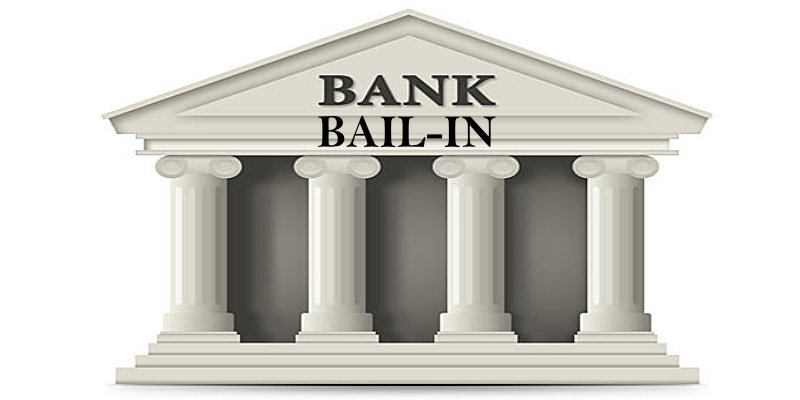Banking Regulations – You Don’t Own Your Money – The Bank Does
I wrote about this shortly after the G20 changed banking regulations during 2014. What did they do? Well, in essence, should there be a banking crisis, they ensured that you will likely not get your money back. They essentially changed your status from a depositor, to an investor. The instant you make a bank deposit, that money becomes theirs, not yours. Sure, they promise to give it back to you upon request (good luck trying to get any substantial amount of cash). However, again, should there be an unwinding financial crisis or collapse (more and more likely), you will never see your money again, or very little of it at best…
I would like to repost what I wrote during December 2014, as a reminder that whatever ‘money’ you may have in a financial institution – is technically not yours. Think about that…
During the next banking crisis, any ‘money’ that you have in the bank will be ‘bailed-in’.
If you think that your money in the bank is protected by the FDIC, think again.
Under the FDIC, US deposits up to $250,000 are protected by federal deposit insurance. HOWEVER, the insurance funds are entirely inadequate to handle a major collapse. The statutory minimum that they reserve is apparently 1.35 percent of all deposits. It seems to me that even if only one major (too big to fail) bank fails, there will be nowhere near enough insurance money. And if the derivatives market unwinds, everyone will be SOL.
During the G20 meeting (mid-November, 2014), the member nations decided that your bank deposits will become property of the bank.
This means that should there be a crisis, the bank will be able to pay off their creditors first (if there’s any left to pay). And the money will no longer be yours. The new rules essentially change the status of you as a depositor (of your money) to that of an investor in the bank. And as with any investor in the stock market (for example) you will be subject to losing your money. The depositors are now responsible for bailing-in the banks for any losses during a banking crisis.
Banking Derivatives: Interbank contracts, bets, hedges. How big is the derivatives market? The total notional amounts outstanding for contracts in the derivatives market is estimated between $600 trillion and a $Quadrillion (updated 2023). Though the gross market value of all contracts is said to be significantly less (though still astounding).
Under the new rules (for example), if the derivatives bubble begins to burst/unwind, and you rush to the bank to withdraw your money (or assume that you will be protected by FDIC insurance), good luck with that. Remember, your deposits become property of the bank. And the FDIC here in the US has ~ 1.35% as a backup.
Within the ‘Executive Summary’ of the (IMF) International Monetary Fund paper, From Bail-out to Bail-in: Mandatory Debt Restructuring of Systemic Financial Institutions, we find one definition of ‘bail-in’ as follows:
Bank Bail-in
Emphasis added:
Bail-in, a statutory power of a resolution authority (as opposed to contractual arrangements, such as contingent capital requirements) to restructure the liabilities of a distressed financial institution by writing down its UNSECURED debt and/or converting it to equity. The statutory bail-in power is intended to achieve a prompt recapitalization and restructuring of the distressed institution.
A few points of note, and ‘unsecured’ debt:
What was formerly called a “bankruptcy” is now a “resolution proceeding.” The bank’s insolvency is “resolved” by turning its liabilities into capital. Insolvent banks are to be “promptly recapitalized” with their “unsecured debt”. In other words, your deposits go to the banks creditors.
“Unsecured debt” includes deposits, the largest class of unsecured debt of any bank.
During bank failure, creditors will have first priority for any funds which may be available for pay out.
Since bank depositors money is now considered to be ‘unsecured debt’, the deposits will essentially be converted to bank equity – which means that the depositors will become last to be paid out. And there might not be any money left to be paid out.
What are we to do with this information?
Tangible assets have real value. These tangible assets vary for everyone. Point being, in the end, paper money is just that – paper.
I used to be a depositor in one of the too-big-to-fail banks. Many years ago I switched to a financially-sound credit union. I feel a lot better about that.
Also, apart from setting aside monies for regular bills, a chunk for emergencies, and securing some retirement investment money, I feel better about money in hand (a safe) rather than a bank. And/or tangible hard assets in my immediate control. Especially those that contribute towards self-sustainability (debt-free home, land, etc..).
[ Read: The Banking Pyramid Scheme ]

